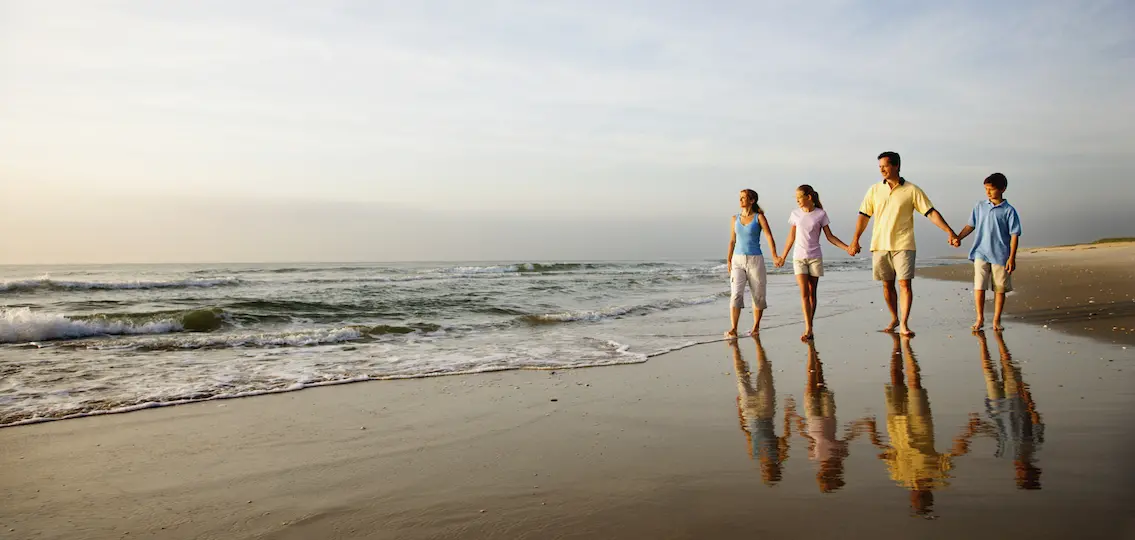I’ve lived in Cleveland, Ohio, for almost 20 years. When people talk about “lake effect,” it has disastrous overtones, and for good reason: It means that we are about to be slammed with snow, the kind where getting out of your house is not an option.

But no one ever told this Cleveland gal about the other type of lake effect.
Five of us had just traveled to Canada for a girls’ weekend. It was our first full day up on the lake, and we were spending a lazy summer morning sitting on the dock. The stillness of the lake was magical. I was in my happy place.
“Does it get any better than this?” I said, fanning my hand above the lake, and simultaneously knocking my phone off the chair into the lake. Far down into the lake, the weed-filled, dark lake.
“Oh my god, my phone!” I shrieked.
Everyone jumped up, some looking off the dock, others swatting at the water. Except one of my friends, who just mumbled repeatedly, “If it’s an iPhone 6, it’s trashed.”
We continued to look anyway, and I had that really sick, how-could-I-do-something-so-stupid feeling. All I could picture was one of my teens telling me they had dropped their phone in a lake and me thinking, How could you be so careless?
Plus, even if we found it, my phone was broken.
Within five minutes I gathered myself, shrugged my shoulders and said, “Whatever.”
“Let’s see if we can find an Apple store,” one friend offered. (We were about two and a half hours from civilization—the whole purpose of the getaway.)
“No, it’s fine.”
“Steph, it’s not a big deal—we have nothing planned,” another suggested.
“No, really. I’m not even sure I want to replace it.”
They all laughed.
“I’m serious. If I can’t survive without a phone, I’ve got bigger issues. Plus, you all have yours, and Todd and Zach get here in 36 hours. I mean it—it’s fine,” I reassured them (or maybe myself?).
Truth be told, I had contemplated a technology free vacation. Work was poised to be quiet. Plus, the cottage didn’t have Wi-Fi, so all online activity would mean international data charges. I figured maybe I would just check my phone at night to make sure that nothing had imploded in my absence. I’ve never had that I’m-so-critical-the-world-will-implode-without-me attitude, so this seemed like a viable plan.
But it begs the question: Why did I take the phone down to the dock in the first place?
I was with some of my favorite people in the world, beautiful scenery, and an endless mug of coffee. It should have been enough.
I could defend myself and say I had it down there to take pictures—and that would be somewhat true. But if I am being really honest, there is something reassuring about having my phone in my hand or back pocket that had become a habit—and not a good one.
My phone had become an appendage. I was ready to be free of it, and that’s when I wondered: Had I purposely dropped it in the lake? Was I putting myself to the test, putting my money where my mouth was? Maybe.
The next 36 hours were heavenly. I drank it all in—my friends, the stillness of the lake, the deep conversations, and the sounds of nature. Days later, I can still hear the fire crackling, see the lotus flowers floating on the lily pads. I was really looking, seeing, imbibing it all. It gave new meaning to the word grateful.
I’ll take this lake effect any day of the week.

Note to the reader: I had packed a waterproof case with a built-in floatation device to prevent this very catastrophe. The problem is that apparently you have to actually use the case for it to work. Leaving it in its package—yeah, waterproof, not foolproof.



